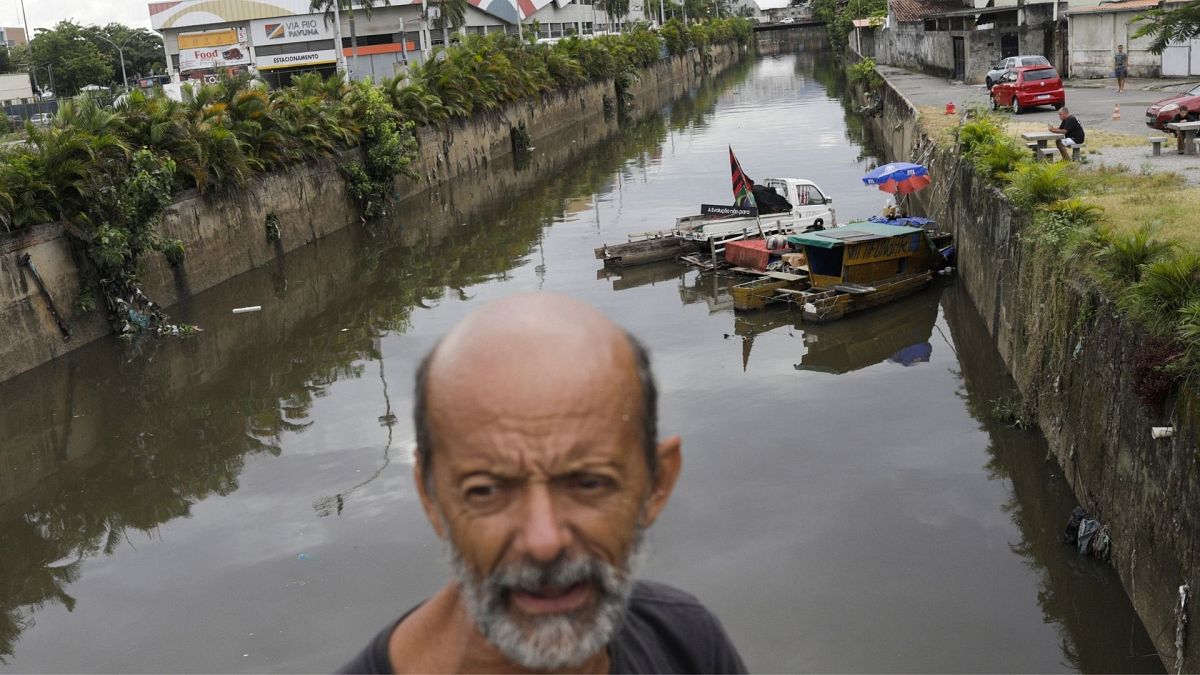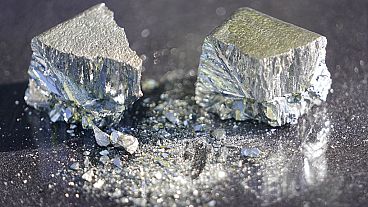Brazilian artist Luiz Fernando Barreto built his floating house on Pavuna River in Rio de Janeiro to bring awareness to the pollution of its waters.
Brazilian artist Luiz Fernando Barreto has built a houseboat made entirely from garbage found floating on the Pavuna River in Rio de Janeiro, Brazil.
Raw sewage and garbage have taken over the water of the Pavuna River that Barreto calls home.
Passersby look in awe as they spot the houseboat the artist assembled from scrap wood, plastic, and metal he found in the river. Known locally as “Luiz Bispo,” the 55-year-old, who considers himself an artist and philosopher, even has his own small circular swimming pool and van on board.
He uses a plastic container to scoop up the dirty water, filtering out plastic and trash, then lets it trickle back into the river.
"If there's a product on the planet that's really valuable, it is neither diamonds nor gold," he says, sitting on an old sports car seat he attached to the raft.
"Water has always been valuable, and always will be. Without water, there's no life."
Barreto grew up in one of Rio's many impoverished neighbourhoods, known as favelas. He wishes global environmental activists like Greta Thunberg would come to see the issues in Rio, particularly the polluted Guanabara Bay that surrounds the city.
Brazil's waters are choked with plastic
Biologists in Rio de Janeiro studying the presence of microplastics in coastal marine life have found that the impact of plastic pollution is far worse than they had feared.
Even sea urchins extracted from what was thought to be a clean area surrounding Cagarras Islands have traces of plastic inside them.
“Our impact is now on a microscopic level in the ocean, "says Ricardo Gomes from the Urban Sea Institute.
"Sometimes that microscopic impact has more harmful consequences than macroplastics that we can see and even pick up.”
According to the Brazilian Association of Public Cleaning and Special Waste Companies (Abrelpe), more than 2 million tonnes of urban solid waste end up in rivers and seas every year in Brazil.
The main aim of his floating home, Barreto says, is to make politicians pay attention to environmental issues. Barreto also hopes environmental activists like Greta Thunberg will come to visit him. "Come to Rio de Janeiro, come Greta, help me clean Guanabara Bay," he says.
Watch the video above to see Barreto's unique floating home.



